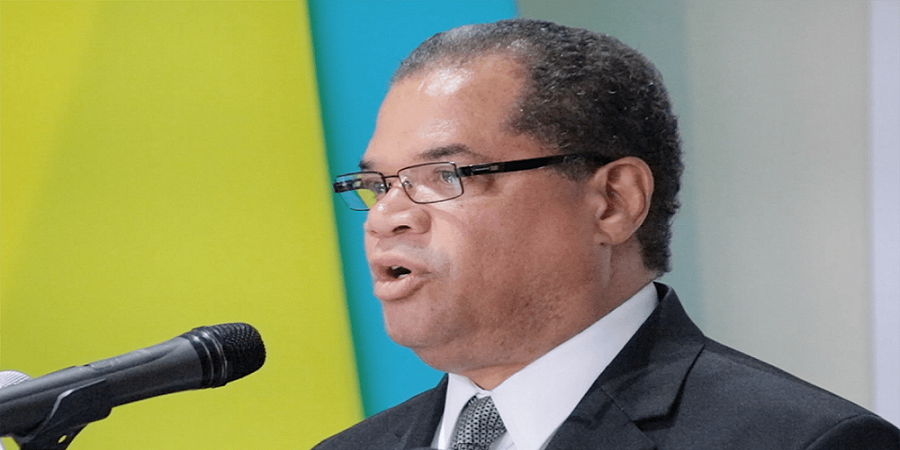#Bahamas, May 28, 2018 – Nassau –
Contribution
by
Senator The Hon. Dion A. Foulkes
Minister of Labour
during
Communication
in
The Senate
Monday, 28 May, 2018
Madam President,
I rise to move for the second reading and committal of the Multi-National Entities Financial Reporting Bill 2018.
This Bill is the first of a projected series of Bills which are necessary to enable The Bahamas to fully comply with its obligations as a member of the inclusive framework of countries who have decided to join the Base Erosion and Profit Shifting (or “BEPS”) project which was launched by the European Union.
The Bahamas agreed to join BEPS in December, 2017 and we were then Blacklisted in March 2018.
As has been announced by The Minister of Finance and DPM the Blacklisting was lifted last week.
The Europeans are using their collective economic and financial strength to compel compliance with their initiatives designed to recover any taxes which might be lost to their Ministries of Finance, due to the operations of tax havens and offshore financial services centres.
Many Bahamians justifiably ask why do we accept such unrestrained exercise of extraterritorial power by the EU; why do we comply? The short answer is that ‘we must comply’.
Just as when the USA implemented the Foreign Accounts Tax Compliance Act (FATCA) in 2014, the whole world was forced to implement the automatic exchange of tax information on all US Citizens who held bank accounts either in their own names or in a company registered in a foreign country. The untrammeled power and financial strength of the USA was enough to compel all to comply.
The PLP, who were in government at that time, duly complied, along with the rest of the world, because failure to comply would have resulted in the imposition of harsh “counter-measures” by the US, and the loss of the ability to utilize international wire transferring mechanisms such as the SWIFT system which is controlled by the US.
For any country, the loss of such privileges and the imposition of economic sanctions would have had a disastrous impact, much more so on a small and open economy such as The Bahamas, where more than 90% of our tourists come from the USA.
The Europeans have similar powers as the USA in the financial services arena. Hence, a Blacklisting could easily have resulted in the loss of correspondent banking relations, where banks abroad, and particularly in Europe, could easily have decided to take “de-risking measures” by shutting off commercial relations with banks and financial institutions located in The Bahamas, on the basis that The Bahamas is a “risky jurisdiction”.
If correspondent banks in Europe were to stop taking deposits of money or payments made from The Bahamas, the effect would be exactly the same as if we were cut off from the SWIFT system by the USA; namely, that money could not go out of or come into The Bahamas by a wire transfer.

Business would come to a screeching halt and the economic damage would be devastating and long-lasting for the Bahamian economy.
Madam President, these are the harsh realities of today’s world. It is all about Tax collection. Period.
The BEPS project is a very complex initiative which essentially reflects a surgical and precise stab at the very heart of the established practices and ways of doing business in the offshore financial services sector.
There are five issues which are being tackled by the BEPS initiative, as noted by the EU’s Code of Conduct Group in their called “Agreed Guidelines”, namely:
When assessing whether such measures are harmful, account should be taken of, inter alia:
whether advantages are accorded only to non-residents or in respect of transactions carried out with non-residents, or
- whether advantages are ring-fenced from the domestic market, so they do not affect the national tax base, or
- whether advantages are granted even without any real economic activity and substantial economic presence within the Member State offering such tax advantages, or
- whether the rules for profit determination in respect of activities within a multinational group of companies departs from internationally accepted principles, notably the rules agreed upon within the OECD, or
- whether the tax measures lack transparency, including where legal provisions are relaxed at administrative level in a non-transparent way.
It should be noted that the present Bill only addresses the 4th consideration.
This Bill imposes what is called “Country by Country” reporting requirements on entities registered or incorporated in The Bahamas which are “constituent entities” in a Multi-National Entities (MNE) international business structure. If the head office of the MNE (or “parent”) is a company in The Bahamas then it must report.
Also a Bahamian company which is a part of the MNE can become a “surrogate parent entity” and thus be obligated to make annual country by country reports if designated by the Parent entity to do so, or if the actual Parent entity is registered or incorporated in a non-reporting country (usually a so-called rogue state, or a country that for some reason is “not obligated to make country by country reports.
This Bill enjoys wide support in our financial services sector because it is designed to have a very limited impact, namely it applies only to MNE entities in The Bahamas which are a part of the Companies Structure of a Multinational Corporation (such as IBM, EXXON, Google etc) which earns an Annual Gross Turnover in excess of $850,000,000.
So a Bahamian company or Parent Company which is a part of a MNE or transnational Company which earns a gross turnover of less than $850 Million each year would be entirely unaffected by this Law.
While this providential issue is one where there is a possibility of maximum compliance on this one issue, with minimal disruption to the financial services sector, we must ever be aware that between now, today, and the 31st December, 2018, we must pass laws to address the other four remaining issues in the listing of so-called “harmful measures”.
They are in short, (1) ring-fencing – This issue really encompasses two of the five ‘considerations’, numbers 1 and 2.

Those two issues deal with circumstances where offshore Companies such as IBCs enjoy no taxation (or minimal or only nominal taxes or fees), and where the domestic economy has to bear the overwhelming burden of business licence and other forms of taxation; and, also, while offshore companies are prevented from participating in the domestic economy, or only permitted to do so on special terms;
(2) Substantive requirements – only where an offshore Company or business entity has a substantive presence and “real economic activity” in the jurisdiction will it be allowed to receive or claim any tax benefit from being registered in The Bahamas, and only in such circumstances of “substantive activity” (office rentals, real value-added activities, employment of staff, and so forth) will it be possible for an offshore entity to be eligible for the granting or international recognition of the grant of tax benefits;
(3) Transparency – This is the third issue remaining to be addressed. In short we will have to pass a Law to codify the National Economic and the Bahamianization policies. The National Economic Council will have to be created in Law, while today, it is merely an administrative sub-committee of Cabinet.
Madam President, there is already a fifth lurking issue, and it is the international push towards increasing transparency of beneficial ownership of all offshore business entities.
This issue is only just heating up. More pressures will come, and come soon. The EU Council of Ministers and Parliaments have recently in their 5th Anti Money Laundering Directive (“5th AMLD”) mandated all EU countries to implement greater access to beneficial ownership information of Companies in European Countries. Access to transparent beneficial ownership information of all Companies and IBCs as well as offshore entities by Law Enforcement Agencies is already a specific Mandate by the Financial Action Task Force (FATF).
As Bahamians, we must be aware of the constantly changing international landscape and be ready to act quickly and decisively to avoid any further reputational damage to The Bahamas and any future Blacklisting.
So Madam President, it is my privilege to recommend this Bill to the approval of the Senate.
As I stated already it is truly “an industry Bill” which has been settled in direct consultation with the financial services sector, and which enjoys widespread support.
I therefore, move that this Bill be read a second time and committed, if I may obtain a seconder.
Release: BIS

